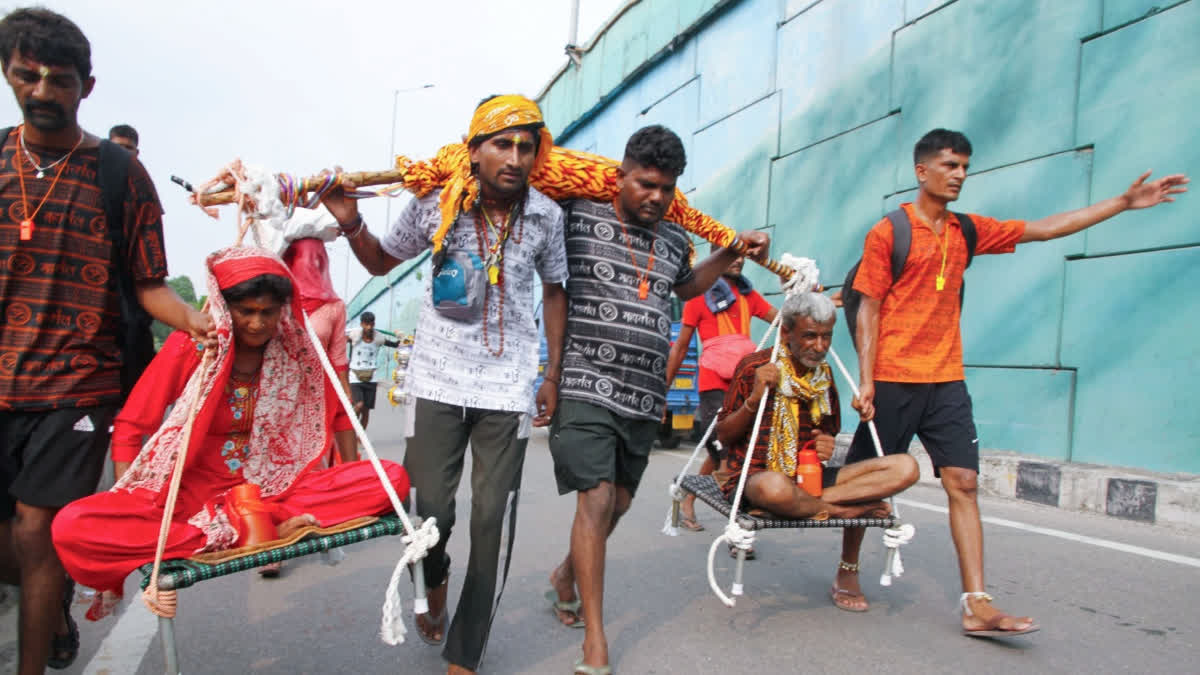New Delhi:The Supreme Court on Monday put on hold a directive issued in the BJP-ruled Uttar Pradesh directing shop owners to display their names outside shops on the Kanwar Yatra route.
The apex court said that eateries on the Kanwar Yatra route owners may be required to display the food they serve but not the name of the owners, and also put on hold similar directives issued by Uttarakhand and Madhya Pradesh.
A bench comprising justices Hrishikesh Roy and S V N Bhatti said, “We deem it appropriate to pass an interim order prohibiting the enforcement of the above directives (issued by UP, Madhya Pradesh, and Uttarakhand). In other words, the fruit sellers, including Dhaba owners’, shops, restaurants etc. may be required to display the kind of food they are serving to the Kanwariyas. But they must not be forced to disclose the names and the identities of the owners or the staff employed in those establishments”.
The apex court issued notice, returnable on Friday, to the governments of Uttar Pradesh, Uttarakhand, and Madhya Pradesh. The court was hearing petitions challenging the directives issued by three state governments, which required eateries on Kanwar Yatra route to display the names, addresses and mobile numbers of their owners and staff.
Petitioners’ counsel argued that if the intention is to provide only vegetarian food to Kanwariyas, then the directive is contrary to constitutional and legal norms prevalent in the country and they stressed that the directives are discriminatory. They vehemently argued that compelling all proprietors to display their names and address, and also of their staff, would hardly achieve the intended objective.
The apex court has scheduled the matter for further hearing on July 26. Senior advocates A M Singhvi, C U Singh, and Huzefa Ahmadi appeared for the petitioners. Lok Sabha MP Mahua Moitra, NGO Association of Protection of Civil Rights and others, have moved the apex court against the state governments directives asking eateries and stalls on the Kanwar Yatra route to display names of their owners.
Senior counsel argued that if the directive of the state governments is permitted to be enforced then it will infringe the secular character of the country. The police had said that the decision was in the interest of law and order.
